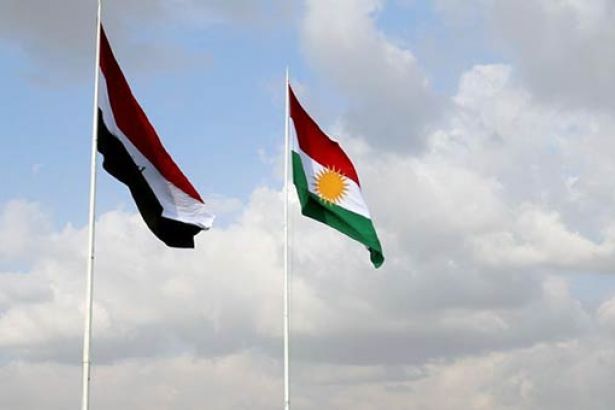Post-invasion Iraq's Kirkuk: debates on demography, fight for oil

The legal status of Kirkuk has long remained uncertain since the US-led invasion of Iraq in 2003.
According to Article 140 of the Iraqi Constitution that was prepared under the U.S. initiative, the status of Kirkuk would be decided through a referendum. Yet, neither Article 140 has been enforced until today, nor prescribed how the referendum could be conducted. The status of Kirkuk, which should have been decided in 2007 in pursuance of the new Constitution, has been postponed due to various objections and ambiguities.
Of all the ethnic groups living in Kirkuk, Kurds want a united Kirkuk with the Kurdish Regional Government while Turkmen and Arabs object this offer. According to the amendment which was projected by the new electoral law adopted by the Iraqi Parliament, a local parliament would exist, in which, Arabs, Kurds, and Turkmen would be represented equally in Kirkuk. However, Talabani vetoed the law draft, leading to the Kurdish protests,
The Kirkuk administration was taken over by the Kurdish Peshmerga forces in 2014 following the Islamic State’s (IS) offence in Iraqi cities, particularly Tikrit.
On April 4, 2017, the Kirkuk Provincial Council decided to conduct a referendum regarding the legal status of Kirkuk.
The Kurdish population of the city want a union with the Regional Kurdish Government in Northern Iraq, Arabs seek for a government under the rule of Baghdad, and Turkmen want an autonomous status.
KIRKUK AFTER 2003
A Provincial Council was established in the oil-rich city of Kirkuk, based on the representation of the city’s ethnic groups following the invasion in 2003.
This Council is composed of 5 blocks, consisting Arabs, Turkmen, Kurds, Assyrian, and independents. Nevertheless, Arabs and Turkmen claim that Kurds are also controlling the seats of the independents.
Kirkuk witnessed this first Provincial Council through a secret direct voting process in 2005.
DEMOGRAPHICS IN KIRKUK
The demographic structure of Kirkuk has been under debate following Article 140 of the US-led Iraqi Constitution.
As entire ethnic and political groups in the region lay claim to Kirkuk, the decision to determine the status of the province with a referendum sparked debates among Arabs and Turkmen after the return of the previously exiled Kurdish population to Kirkuk.
The Barzani administration’s insistence on a referendum to unite the city with the Kurdish Regional Government in spite of objections from the Arabic and Turkmen political representatives in the region prove that the Kurdish population is larger than other ethnic groups following their return to the province.
The most reliable census regarding the city’s demographics dates back to 1957, demonstrating that Kurds consisted the majority across the whole province of Kirkuk while the number of Turkmen and Kurds was approximately equal in the city centre.
By the year of 1997, the city’s population had changed in favour of Arabs against Turkmen and Kurds.
ETHNIC CONFLICTS IN KIRKUK
Armed conflicts and bomb attacks have been observed at some places in consequence of the tension between ethnic groups in the province. For instance, a meeting that was to be held by Barzani and Talabani with Arab communities became the target of a suicide attack.
The claims on the province and the question which side will get Kirkuk’s oil revenues are the main reasons of the conflicts.
UN’s SOLUTION PLAN
Far from reaching a certain status, Kirkuk has become a point of the question in terms of international politics as well. Debates over what entities will benefit from Kirkuk’s oil revenues are shaping the proposals of resolution in international politics.
The United Nations prepared a road map with five alternatives for the status of Kirkuk. One of the alternatives offered to link the province to Baghdad financially while entrusting it with a special autonomy. Barzani strongly objected to this offer, advocating that a referendum should be carried out in Kirkuk.
THE QUESTION OF OIL
The political status of Kirkuk has become uncertain due to oil agreements with states and companies.
Laying a legal claim to Kirkuk’s oil, the Baghdad government considered the Kurdish Government’s agreements with oil companies as illegal.
Launching oil trade in the regions it invaded, the IS targeted Kirkuk with suicide attacks. It can be argued that the IS also wants to invade the province with the aim of seizing the oil resources.
The question of Kirkuk’s oil is still under debate after the IS was rebuffed from the province. North Oil Company, operating in Kirkuk, became the target of attacks recently despite no further information regarding the attackers was provided.
Moreover, the crisis, which emerged following the Patriotic Union of Kurdistan-affiliated Peshmerga forces’ invasion of oil wells in the previous month, could be resolved through an agreement between Baghdad and the Kurdish Regional Government.
REACTIONS AGAINST KURDISH FLAG
The Turkish government declared its concerns while Turkmen took to the streets and launched protests following Kurds’ decision to fly the Kurdish flag over state buildings in Kirkuk
The Provincial Council’s resolution to carry out a referendum in Kirkuk also raised concerns for the Justice and Development Party (AKP), which has political links with the Turkmen population in Iraq.
Despite the Baghdad administration objected to the Kurdish flag in Kirkuk, Provincial Council’s head, Rebwar Talabani said at a press conference that they will not abide the Iraqi Parliament’s decision condemning raising flags other than the Iraqi flag in the province.



